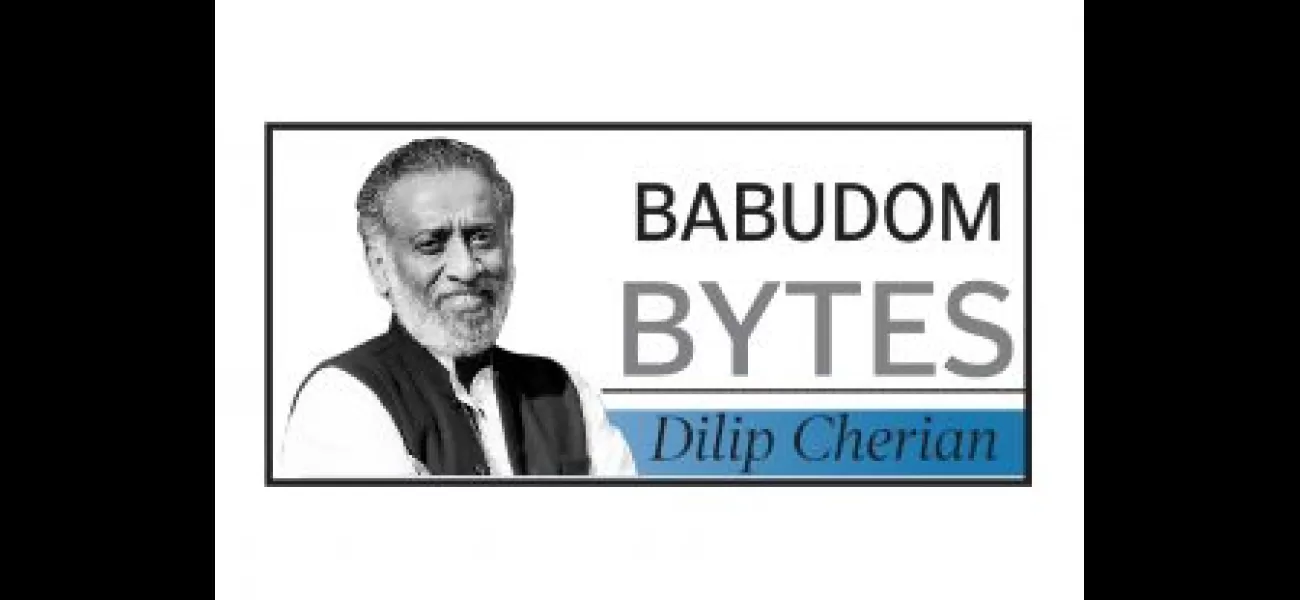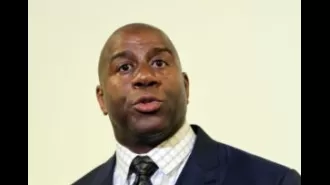The NSA is undergoing a reorganization.
New appointments, including Pavan Kapoor as Deputy NSA, have brought changes to the National Security Council Secretariat while maintaining some continuity.
July 13th 2024.

Recently, the National Security Council Secretariat (NSCS) has undergone a few changes while maintaining some consistency. Pavan Kapoor, the former Secretary in the External Affairs Ministry, has been appointed as the new Deputy National Security Adviser. This decision is part of a series of appointments, including the promotion of Rajinder Khanna to the newly created position of Additional NSA. Khanna, who previously served as the head of India's external intelligence agency, the Research & Analysis Wing (RAW), will now play a crucial role that did not exist before.
In addition to these changes, another significant appointment is that of TV Ravichandran, an IPS officer currently serving as Special Director in the Intelligence Bureau. He replaces Khanna as Deputy NSA and will serve until his retirement on August 31, 2024, with the possibility of continuing on a contractual basis. These appointments come after the recent announcement of Vikram Misri as the next Foreign Secretary, effective from July 15.
Overall, these changes mean that under NSA Ajit Doval, who is now in his third term, there will be one Additional NSA and three Deputy NSAs. The Appointments Committee of the Cabinet has played a crucial role in these appointments, ensuring a balance of fresh perspectives and experienced leadership within the NSCS. These strategic appointments may also hint at potential future shifts within the NSA office itself, with speculation of a major reshuffle of key secretaries and other significant positions in September.
In the state of West Bengal, accusations have been made against top officials by Governor CV Ananda Bose. In letters to Union Home Minister Amit Shah, Bose has urged strict action against Chief Secretary B.P. Gopalika and two senior police officers, Kolkata Police Commissioner Vineet Kumar Goyal and Deputy Police Commissioner Indira Mukherjee. These letters, sent last month, allege that the officers have violated conduct rules and acted as "willing accomplices in the misdeeds of the ruling dispensation."
Sources have revealed that the Union Home Ministry has initiated disciplinary action against Goyal and Mukherjee for allegedly maligning the office of the state Governor by "promoting and spreading canard." Bose's detailed notes have created quite a stir in the bureaucratic circles, as he outlines how the officers, particularly Chief Secretary Gopalika, have openly disregarded the Constitution and conduct rules. He warns that failure to take action could further damage the integrity of the Services and harm the nation's interests. The governor also accuses Gopalika of aiding and abetting corruption and highlights issues such as job recruitment scandals and alleged lawlessness in the state.
Bose's letters also include allegations against Goyal and Mukherjee, linking them to an investigation into sexual misconduct allegations against him. These accusations seem to be part of a broader effort by Bose to clear his name, as he has previously dismissed the sexual harassment claims as a "sinister plot." Interestingly, these letters come amidst speculation about Bose's potential removal from his post in Bengal, with rumours of dissent among state BJP leaders and the common practice of reshuffling Raj Bhavan after a new regime takes office in Delhi.
In Gujarat, the High Court has dismissed the petition of Hitesh Kumar Makwana, who has been seeking a transfer from Tamil Nadu to his home state of Gujarat. The court argues that such a change at the end of his career would have a domino effect on other appointments within the cadre. Makwana has been fighting this issue legally since 1996, arguing that he should have been placed in Gujarat as an insider based on the 2:1 ratio for cadre allotment favoring outsiders and insiders. After being denied by the Centre, he took his case to the Central Administrative Tribunal and then escalated it to the High Court.
However, the Centre has stood firm, stating that Makwana has no inherent right to be placed in his home state's cadre and that cadre allocation is an administrative matter subject to judicial review only in clear cases of discrimination. After years of legal battles, the court's decision puts an end to this longstanding fight and serves as a reminder of the broader implications of cadre allocations.
In addition to these changes, another significant appointment is that of TV Ravichandran, an IPS officer currently serving as Special Director in the Intelligence Bureau. He replaces Khanna as Deputy NSA and will serve until his retirement on August 31, 2024, with the possibility of continuing on a contractual basis. These appointments come after the recent announcement of Vikram Misri as the next Foreign Secretary, effective from July 15.
Overall, these changes mean that under NSA Ajit Doval, who is now in his third term, there will be one Additional NSA and three Deputy NSAs. The Appointments Committee of the Cabinet has played a crucial role in these appointments, ensuring a balance of fresh perspectives and experienced leadership within the NSCS. These strategic appointments may also hint at potential future shifts within the NSA office itself, with speculation of a major reshuffle of key secretaries and other significant positions in September.
In the state of West Bengal, accusations have been made against top officials by Governor CV Ananda Bose. In letters to Union Home Minister Amit Shah, Bose has urged strict action against Chief Secretary B.P. Gopalika and two senior police officers, Kolkata Police Commissioner Vineet Kumar Goyal and Deputy Police Commissioner Indira Mukherjee. These letters, sent last month, allege that the officers have violated conduct rules and acted as "willing accomplices in the misdeeds of the ruling dispensation."
Sources have revealed that the Union Home Ministry has initiated disciplinary action against Goyal and Mukherjee for allegedly maligning the office of the state Governor by "promoting and spreading canard." Bose's detailed notes have created quite a stir in the bureaucratic circles, as he outlines how the officers, particularly Chief Secretary Gopalika, have openly disregarded the Constitution and conduct rules. He warns that failure to take action could further damage the integrity of the Services and harm the nation's interests. The governor also accuses Gopalika of aiding and abetting corruption and highlights issues such as job recruitment scandals and alleged lawlessness in the state.
Bose's letters also include allegations against Goyal and Mukherjee, linking them to an investigation into sexual misconduct allegations against him. These accusations seem to be part of a broader effort by Bose to clear his name, as he has previously dismissed the sexual harassment claims as a "sinister plot." Interestingly, these letters come amidst speculation about Bose's potential removal from his post in Bengal, with rumours of dissent among state BJP leaders and the common practice of reshuffling Raj Bhavan after a new regime takes office in Delhi.
In Gujarat, the High Court has dismissed the petition of Hitesh Kumar Makwana, who has been seeking a transfer from Tamil Nadu to his home state of Gujarat. The court argues that such a change at the end of his career would have a domino effect on other appointments within the cadre. Makwana has been fighting this issue legally since 1996, arguing that he should have been placed in Gujarat as an insider based on the 2:1 ratio for cadre allotment favoring outsiders and insiders. After being denied by the Centre, he took his case to the Central Administrative Tribunal and then escalated it to the High Court.
However, the Centre has stood firm, stating that Makwana has no inherent right to be placed in his home state's cadre and that cadre allocation is an administrative matter subject to judicial review only in clear cases of discrimination. After years of legal battles, the court's decision puts an end to this longstanding fight and serves as a reminder of the broader implications of cadre allocations.
[This article has been trending online recently and has been generated with AI. Your feed is customized.]
[Generative AI is experimental.]
0
0
Submit Comment





